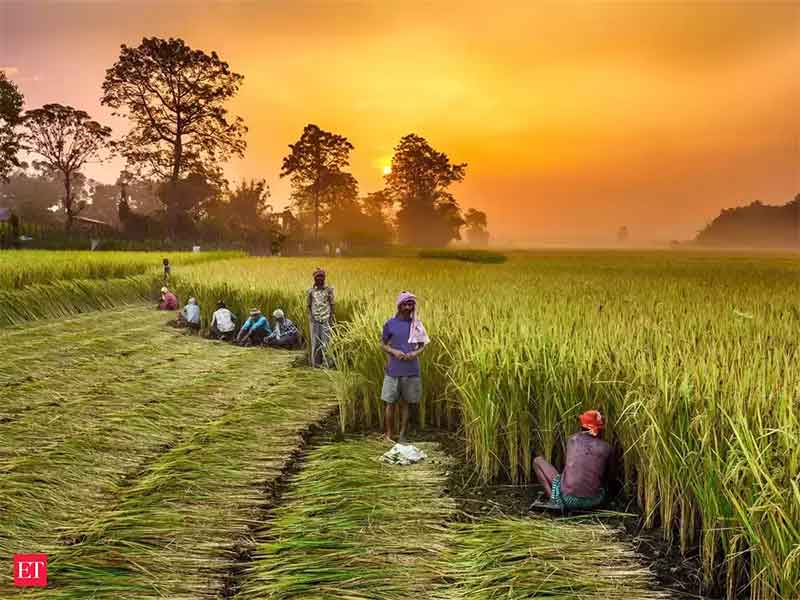Opportunities for mutual cooperation between Iran and Zimbabwe in the field of agriculture
Explaining the issues raised in the meeting with the Minister of Fisheries of Zimbabwe, the Minister of Agriculture Jihad announced: Issues such as contract farming, agricultural mechanization, poisons, fertilizers, production and breeding of aquatic animals in cages were discussed.
According to Bazar, Seyyed Javad Sadatinejad, in a meeting with his counterpart Anxius Jongo Masuka, Minister of Fisheries, Water, Climate and Rural Development of the Republic of Zimbabwe, announced the principles of the government's foreign policy based on constructive interaction with all countries of the world and added: Expanding political and economic cooperation And culture with the friendly country of Zimbabwe is emphasized by the President of the Republic of Iran and is important for the agriculture of the 13th government.
The Minister of Agricultural Jihad stated: contract farming, technical knowledge, technology transfer, clearing the production capacities of the two countries, agricultural mechanization, poisons, fertilizers, production and breeding of aquatic animals in cages were examined.
He clarified: Despite the very good political relations between the two countries, the volume of economic relations does not match the existing capacities of both sides and the history of their political relations, and Iran declares its readiness to expand economic and commercial cooperation.
Referring to Iran's ability to produce urea fertilizer and Zimbabwe's need of 100 million dollars for this product, Sadatinejad said: One of the fields could be the exchange of Iran's urea with Zimbabwe's sugar.
He considered Iran's technical knowledge and agricultural technology to be rich and added: Iranian knowledge-based companies have very good capacities in the production of vaccines and animal medicines. Production and export of agricultural mechanization, including tools, tractors, irrigation equipment and production technology of various agricultural products are among other sectors for cooperation.
The Minister of Jihad of Agriculture stated: A huge research institute in Iran's agricultural structure (TAT) is working with 2 thousand agricultural experts and 8 thousand researchers, which can provide comprehensive services in the field of knowledge and technology production, education and research.
Referring to Iran's geography, he said: 300 million people with diverse food needs live around Iran, and Zimbabwe can use this strategic area as a regional hub to supply agricultural products.
He mentioned Zimbabwe's need of 28 million dollars for industrial milk powder and added: Iran is one of the major producers and exporters of this product and Tehran is ready to meet the needs of Harare (the capital of Zimbabwe).
He added: Of course, with the country's large food industry companies, we can supply Zimbabwe's 300,000 tons of pasta and other food items.
In the continuation of this meeting, the Minister of Fisheries, Water, Climate and Rural Development of the Republic of Zimbabwe, Anxius Jongo Masuka, thanked Iran for his hospitality, conveyed the warm greetings of the President of his country to his Iranian counterpart and, referring to previous understandings, requested to update the provisions of the agreement. .
Announcing his country's need for 20,000 tractors, he said: mechanization of agriculture and fisheries is one of Zimbabwe's agricultural needs. Agricultural fertilizers and pesticides also include other agricultural needs of Zimbabwe.
I have to say; In this meeting, the experts of both sides presented their technical views on the matters under discussion.
According to IRNA, Zimbabwe with the official name of the Republic of Zimbabwe is a landlocked country located in southern Africa. Harare is the capital and largest city of this country with a population of 15 million. Agriculture takes two thirds of the country's workforce. Tobacco, sugarcane, corn, cotton, and wheat are part of the country's exports, and its natural resources include coal, gold, fireproof cotton, and nickel. The gross domestic product of this country in 2017 was about 17 billion US dollars. The imported products of this country include agricultural machinery and equipment, factory products, pharmaceuticals, and fuel.

